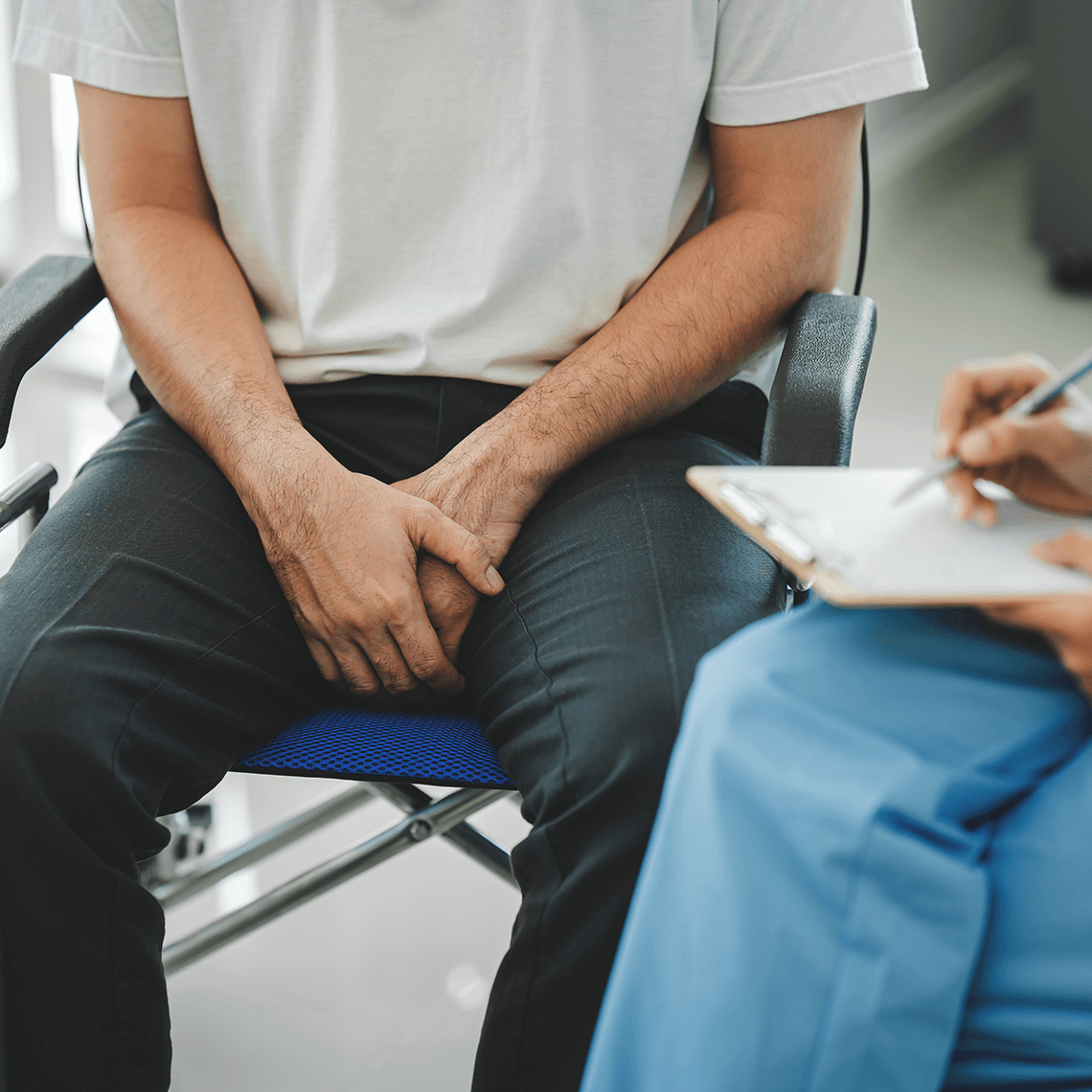Podcast
Fighting Discrimination in the Health Profession at Harvard
Feb 28, 2022

Commentators
- Elizabeth Cushing, JD
- Lisa Damon, JD
- Sareh Parangi, MD
Transcript
Welcome to Safety Net, a patient safety podcast from CRICO, the malpractice and patient safety company for the Harvard Medical System. On today’s episode, we begin to look at the legal and ethical dynamics in health care behind conflicts over discrimination and harassment among colleagues and staff.
I’m Tom Augello, Senior Editor here at CRICO, and I’m joined by three very special guests, starting with CRICO Senior Vice President of Claims, Beth Cushing. Beth is an attorney who oversees CRICO’s Claims Department, which is responsible for management and conflict resolution of liability claims for the Harvard medical system. Thank you for being here, Beth.
[Beth Cushing]
Great to be here, Tom, thank you.
Also joining us are two leaders of the movement to reduce these harms and occurrences in the Harvard medical system, Dr. Sareh Parangi, Chief of Surgery for Newton-Wellesley Hospital and Director of Diversity, Equity, and Inclusion for the Department of Surgery at Massachusetts General Hospital in Boston. And we are also joined by Lisa Damon, a partner at Seyfarth Shaw, LLP in Boston, who has worked extensively in employment discrimination law including intervention projects led by Dr. Parangi at MGH. Thank you all for being here.
[Lisa Damen]
Thanks, Tom.
[Sareh Parangi]
Thank you so much
Q.) Beth, the concerns over employment liability seemed to have only grown over the past decade. They seemed to have picked up momentum along with the Me Too Movement, and other kinds of social changes. The health care industry is no exception, so what’s been CRICO’s approach to this risk as it evolves and how does a malpractice insurance company make a difference besides just sort of reacting to lawsuits and defending claims?
[Beth Cushing]
A.) Great question, Tom, thank you. You are correct, that while CRICO has been writing employment practices liability for over 30 years, we have had very little activity in that space over that time, until about a decade or so ago when I think the entire country was experiencing an uptick in sexual harassment claims, gender discrimination claims, particularly among health care employees including physicians. And that was a little bit new for us and for I know other academic medical institutions in the country. So we, of course, took note of the social climate and connected more deeply with our institutional partners, similar to what we do on the medical malpractice side, to see what really are the root causes of these conflicts and was there anything that together we could start to address to mitigate those risks.
Q.) Beth, what kinds of claims and allegations are we seeing?
[Beth Cushing]
A.) By and large, the cases are based on alleged race discrimination, gender discrimination, and sexual harassment and retaliation. Those would be the big buckets that we see. There are other smaller areas that we have some experience in, but that is the majority of the claims in the employment practices area.
As we looked at all of these topics and, of course, we were very sensitive to the Me Too Movement, and we looked at all of what was happening socially and within our own institutions and had many conversations about what that really looks like in the Harvard Community. And as it happens, we then connected with Sareh Parangi who was interested in this field for reasons that I’m sure she would love to tell us and had applied for a CRICO grant to explore this area and bring some of her knowledge and experience to sexual harassment in the surgical field. And so, when I saw the grant come through, I just knew right away there would be great synergy with the work that we were trying to do. And I’ll let her tell you how successful and wonderful that has been. And we were able to also bring in Lisa Damon, who is really our key defense attorney in this space and advisor. And so it’s just the perfect union for us. And I will say, that surgery is the number one area where we see claims and conflicts historically and currently. So, we obviously had great interest in hearing from someone who has lived the experience and continues to live in that space, what she and her colleagues thought might be worthy of attention and improvement.
Q.) Sareh, was there one thing that led you to this effort? Was there one experience? Was there one episode, one moment in time or was this building?
[Sareh Parangi]
A.) Tom, I think this is definitely an experience that women physicians live all the time. But I think your question is a good one. There was kind of a moment. One time one of the Presidents of the Association of Women Surgeons and I were sitting together chatting about how when someone makes a very discriminatory comment based on our gender, both of us are so dumbfounded we usually don’t know what to say. And we thought to ourselves in that discussion, if we, both Presidents of the Association of Women Surgeons, with a certain stature—professors at Harvard, etcetera—are dumbfounded and don’t know what to say, why aren’t we working together to train the next generation and ourselves and everyone around us to actually know, recognize the behavior as inappropriate and have some kind of strategy for a response. And we thought about how in the medical world we train for everything. We train for emergencies. We train how to put an airway in. We train how to give bad news. But we never trained for this so, of course, we’re kind of dumbfounded. So, that was sort of a, I’d say, a light bulb moment for us where we said, well, no one else is going to work on it, why not us?
Q.) And maybe you can give us a little brief outline of the project and what’s going to happen first?
[Sareh Parangi]
A.) Okay, so, the project that we’re doing is basically named, Smart Appropriate Response Training, which is creating a role-playing training toolkit for residents in surgical departments to be able to address sexual harassment, gender discrimination, and gender-based micro aggression. The “why?” why should we be interested in this was a report from the National Academy of Science Engineering and Medicine in 2018 that basically said 50 percent of women medical students and women faculty are experiencing sexual harassment. And really what we found in our research is that one of the key factors that contributes to sexual harassment in the medical world is a culture of tolerance. And we couldn’t find in the literature really almost anything about how one should respond to sexual harassment or gender discrimination. What are the tactics? And what we found is usually people were either appeasing or avoiding the harasser, psychologically detaching themselves, or trying to endure the situation or making up an excuse, or at most maybe seeking social support. And they were afraid to do much more because of the high risk of retaliation that Beth talked about.
Q.) Lisa, it might be a good time for you to tell us what you have found, not just in your extensive background, but engaged in this project? What has been remarkable to you?
[Lisa Damon]
A.) Many things. First of all, it’s, this is just an extraordinary initiative. I do a lot of work across the country with organizations that are grappling these issues, and my hat’s off to CRICO for supporting this and for MGH and MGB to have this program. It’s really something. It’s incredibly powerful to have all of these voices who have been touched by this kind of activity, working together to empower others. It’s a unique opportunity and I think resulting in some very, very, very powerful training. It’s interesting because a lot of the training that is done in companies, as Sareh said, it’s don’t do this and don’t do that. But what we’re doing here with this group is we’re really trying to understand what’s happening in their daily lives, real daily lives. And then what they can do at the time then and later to stop the conduct, to correct for it, to protect each other and we’re doing it in a group setting where there’s a tremendous amount of support and empowerment around them. It’s really been a remarkable experience for me to be part of. I think we will see coming out of this a new way to train medical professionals that is much more impactful than the way they’ve been trained in other companies and organizations. Very, very interesting.
And I think the other thing that we’ve really spent time on as part of this training, is to tease out this issue between intent and impact, right. A lot of professionals of all kinds, including medical professionals, believe very clearly that if there’s no intent, then there can’t be any harassment or discrimination or retaliation. ‘If I didn’t mean it, I’m just being, I’m being friendly and I’m trying to break the ice, I’m trying to be light and make a joke, there can’t be anything wrong with that.’ And so, a big piece of this learning is not only for the people who are teaching the facilitators, but also as part of the program to understand that it’s really the impact. It’s how those jokes or the teasing or the comments, how that lands for the people and how that then impacts their work. So, it’s been a remarkable experience and I’m really thrilled to be part of it and as I said, really—Beth knows this—I just think CRICO is really right out in front trying to make a difference.
Q.) Lisa, in your experience looking inside of the Harvard system and outside of the Harvard system, what are the main misconceptions that leaders and others responsible for these environments, what kinds of misconceptions or misunderstandings do they have about these issues?
[Lisa Damon]
A.) I think the biggest one is the intent versus impact one. I hear that all the time. You know, ‘oh, so and so didn’t mean it, right, that’s just the way they are.’ And the minute you hear that, you know that you’ve got a problem brewing and so I think that’s a big issue.
You know the other issue is this concept, you hear it a lot now, of a toxic or hostile workplace. People feel as if their environment is hostile. And I think leaders, when they hear that don’t think about the legal implications of that. But a toxic environment if it’s toxic for people, that can lead to issues.
Another issue that we grapple with across the country is managers not understanding that they’re responsible for doing something and taking action. So, there are a lot people who see something and bystanders, they don’t do anything because they think it’s not, it may not be somebody they directly supervise. They may not feel as if they’re far enough up in the organization. They may feel as if they don’t, they don’t know where to go and don’t know what to do. Their inaction can cause liability on behalf of the organization. And so, again, trying to empower people.
And probably the last one I see all the time and we talked about it in this program is people being afraid to report. This is a huge problem for all organizations because unless these issues are reported up to a level where action can be taken, very often they’re not attended to and problems can grow. And so, I think one of the things we’ve seen in this program, and CRICO’s been very good about, is making sure that all of our institutions and organizations have a reporting structure where people can report anonymously, as well as in person if that’s what they’re comfortable with. But the anonymous reporting in a way that is confidential and reliable is very important to making this work for all of us.
[Beth Cushing]
I’m glad you brought that up, Lisa, because it’s such a critical point. And as you know, we have been looking at the reporting opportunities and MGB has a wonderful program that they’re rolling out called Know the Line. It’s really a great model for other institutions I think. Because, needless to say, when we’re defending these cases down the road all of these things are perfectly clear that people knew about the behavior. No one did anything about it. There are emails about it. You know, it’s all well documented how unfortunate the circumstances were. And to be able to get to the problem sooner rather than later, again, back to the theme of how do we identify these things? It is reporting. It is by vigilance and surveillance and it is by education, so that people can be more cognizant of how these problems land on other people.
I would like to say that it takes people like you, Sareh, who are willing to be champions within a very large organization, that you just can’t address every problem in every corner with one fell swoop. And so, it takes champions and I applaud you for taking this on. It’s so important and trying to give this new generation a better future.
[Sareh Parangi]
Thanks, Beth. I think we’re all learning together, and I think that’s the sense I get what you just said from the group of facilitators that we’re training, is that everyone is very invested in learning how to train the next group and the next group because like we started, they’ve lived experience. It wasn’t great. Some of them are still quite traumatized by some of the experiences and the common thread is they want to help change this situation for future generations. And I think for groups that might want to emulate these kinds of programs, I think that is really critical, that the leadership be very much behind you when you’re starting this kind of training. But it’s scary for them.
[Beth Cushing]
Absolutely.
Q.) Now where do we go from here then? Sareh, you’ve got the training program. You’re going to be diving deep into that this year. This issue is not going away by any stretch. Lisa, nationally where do you see this whole issue going? Is it getting better? Is it getting worse? Is it getting different? Where do you see this headed?
[Lisa Damon]
A.) I think it’s changing. Many employers across the country have recognized the importance of training and that’s a good thing. So, they’re training their managers and their employees to understand what the law is in this area and the law has evolved and shifted as society has changed. What I see now though is that there are more subtle forms. The issue of micro aggressions, unconscious bias, has become more and more relevant in workplaces as they grapple with toxic cultures, as they grapple with the importance of equity and inclusion. So, the issues have changed and because of that I think the training needs to change, the preparation of managers needs to change. We need to look at things differently and I think this program really is part of that next step.
Q.) Well, this will be an ongoing discussion no doubt. I’d like to thank all of our guests today, starting with Beth Cushing, CRICO’s Senior Vice President of Claims, and Dr. Sareh Parangi, Chief of Surgery for Newton-Wellesley Hospital and Director of Diversity, Equity, and Inclusion for the department of surgery at Massachusetts General Hospital in Boston. And thank you as well to Lisa Damon, partner at Seyfarth Shaw, LLP in Boston.
I’m Tom Augello for Safety Net.
About the Series
We’ve got you.
Our Safety Net podcast features clinical and patient safety leaders from Harvard and around the world, bringing you the knowledge you need for safer patient care.
Episodes
$1.5 Billion in Miscommunication: Medmal Data Report Finds Opportunities
Case Dismissed! Every Medical Defendant’s Dream Still Holds Some Nightmares

Expert: Communication Is Top Fix for Prostate Care Allegations

How Depositions Make or Break a Medmal Defense


